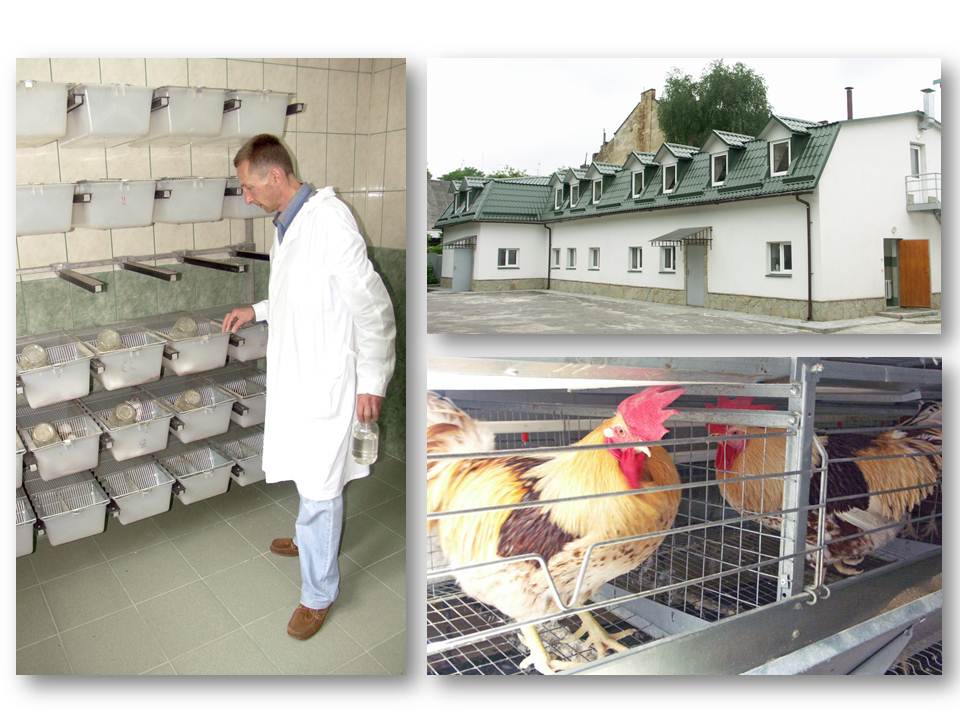
Oleh
Farion
Head of the Vivarium
Tel +38 (032) 252-33-72
The vivarium includes a vivarium for preclinical studies (acute, subacute, chronic toxicity, pyrogenicity, cumulative, skin and eye tests) and a clinic for clinical trials of veterinary medicines and safety profiles of generic medicines.
The vivarium is equipped with double ventilation, air conditioning, electricity and water supply to create a suitable microclimate. The vivarium has a classroom where specialists are trained and students can study. The clean area (on the ground floor) of the vivarium houses animals that are being prepared for experiments, the so-called “clean animals”. On the second floor there are laboratories and rooms for keeping laboratory animals (by species) that have already been used in experiments. There is a room for pathological autopsy where pathological material is collected and animals that have been used in research or have died are disposed of. The animals are frozen in the freezer at minus 26-36°C and then sent to the veterinary facility in special containers. There is also an autoclave for sterilising relevant microbiological material, instruments, etc. There is a separate room for the storage and preparation of feed for feeding.
Work with animals is carried out in accordance with the requirements of the European Convention for the Protection of Vertebrate Animals used for Experimental and Scientific Purposes (Strasbourg, 1985) and the resolution of the First National Congress on Bioethics (Kyiv, 2001) to study and control ethical approaches to experimental research for scientific purposes. To this end, the Institute has established and is actively working with a Bioethics Review Committee.
Preclinical studies are performed on the following laboratory animals Wistar rats, white non-linear mice (second quality category according to the Laboratory Animal Classification and international GLP standards) and rabbits. Laboratory rodents are housed in special plastic cages covered with metal mesh, which are easy to disinfect.
Clinical trials are conducted on piglets and chickens (juveniles, broilers, layers). Each age group has its own room. The clinic rooms are equipped with modern high-tech surveillance cameras. For example, the behavioural reactions of animals and poultry during the experiment can be monitored remotely – even from outside Ukraine.

